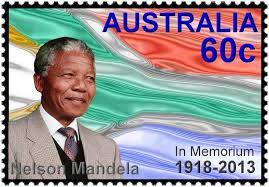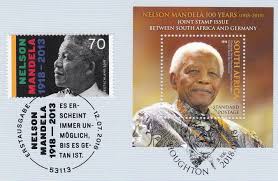
During Nelson Mandela’s 19 years imprisoned on Robben Island, one particular commanding officer was the most brutal of them all:
“A few days before Badenhorst’s departure, I was called to the main office. General Steyn was visiting the island and wanted to know if we had any complaints. Badenhorst was there as I went through a list of demands. When I had finished, Badenhorst spoke to me directly.
He told me he would be leaving the island and added: ‘I just want to wish you people good luck’.
I do not know if I looked dumbfounded, but I was amazed. He spoke these words like a human being and showed a side of himself we had never seen before. I thanked him for his good wishes and wished him luck in his endeavours.
I thought about this moment for a long time afterwards. Badenhorst had perhaps been the most callous and barbaric commanding officer we had had on Robben Island. But that day in the office, he had revealed that that there was another side to his nature, a side that had been obscured but still existed.
It was a useful reminder that all men, even the most seemingly cold-blooded, have a core of decency and that, if their hearts are touched, they are capable of changing.
Ultimately, Badenhorst was not evil; his inhumanity had been foisted upon him by an inhuman system. He behaved like a brute because he was rewarded for brutish behaviour.”
From “Long Walk To Freedom” by Nelson Mandela
Source: http://www.rogerdarlington.me.uk/
Image courtesy: Philindia.info

Nelson Rolihlahla Mandela (1918-2013) was a South African anti-apartheid activist and politician who served as the first president of South Africa from 1994 to 1999. He was arrested and imprisoned in 1962, and sentenced to life imprisonment for conspiring to overthrow the state. Mandela served 27 years in prison, split between Robben Island, Pollsmoor Prison and Victor Verster Prison. Amid growing domestic and international pressure and fears of racial civil war, he was released in 1990. Ideologically an African nationalist and socialist, he served as the president of the African National Congress (ANC) party from 1991 to 1997, leading it to victory in a fully representative, multicultural democratic election in 1994, and became the country’s first black head of state. His government focussed on dismantling the legacy of apartheid by fostering racial reconciliation. Globally regarded as an icon of democracy and social justice, he received more than 250 honours, including the Nobel Peace Prize. He is held in deep respect within South Africa, where he is often referred to by his Thembu clan name, Madiba, and described as the “Father of the Nation”.
